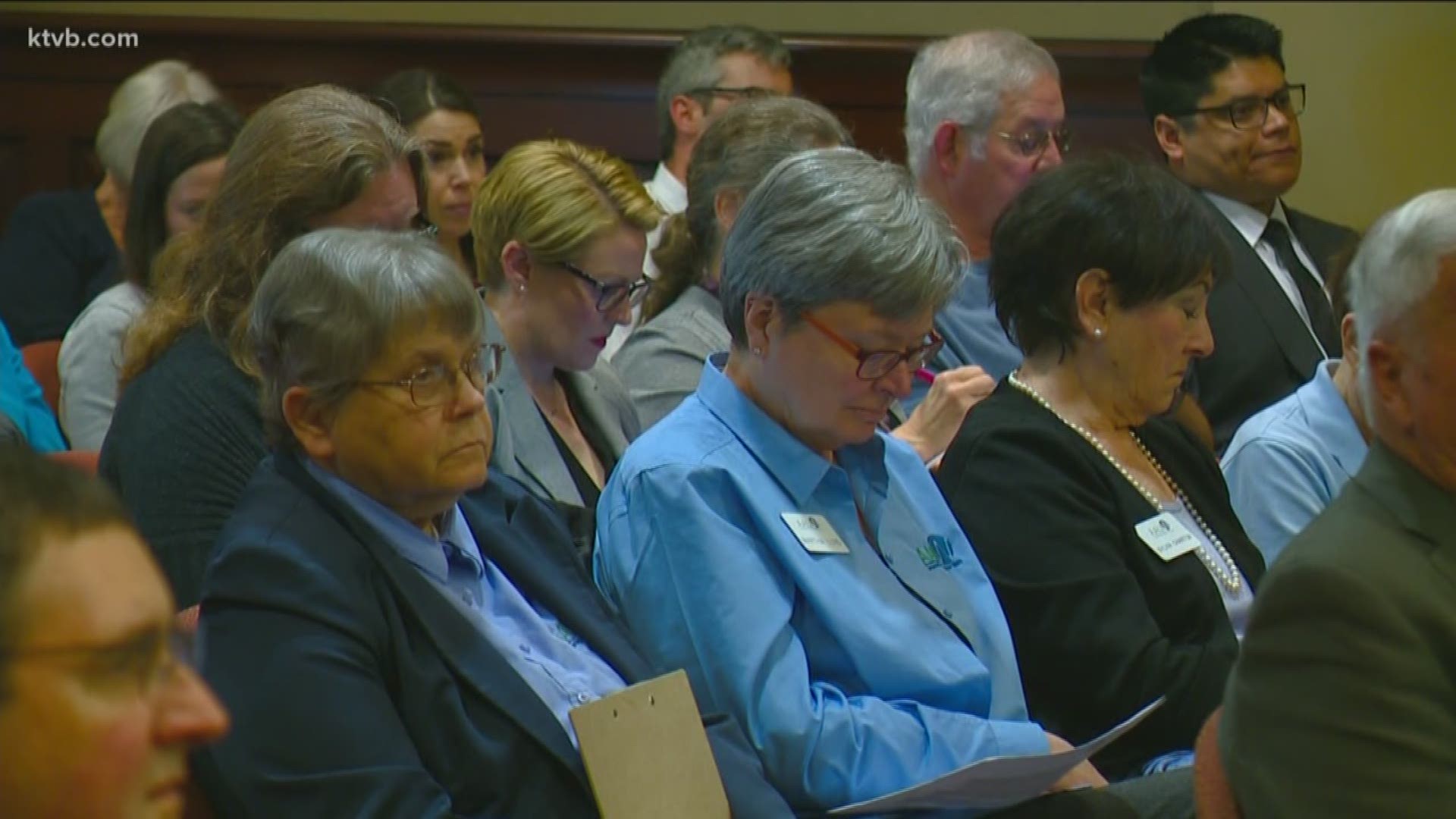BOISE, Idaho — Legislation requiring some Medicaid expansion recipients in Idaho to work failed in a Senate committee on Wednesday, upending the bill crafted to make it through both the House and Senate and get Gov. Brad Little's signature.
The Senate Health and Welfare Committee voted 7-2 to hold the bill in committee, killing it. The bill's Republican sponsor, Rep. John Vander Woude, said a federal judge's ruling against work requirements in two states was released during the committee meeting and likely spurred the committee to vote no after the measure passed the House earlier this month.
A different Medicaid expansion bill with voluntary work requirements is still alive. It's in the Senate awaiting amendments and, if the Senate approves, goes to the House for consideration.
"We have to come up with a solution," Vander Woude said after the vote. "That's why we started this whole process. What the solution is going to look like, I don't know."
The legislation put forward by Vander Woude would have required a 20-hour-per-week work minimum and people who are between 100 and 138 percent of the federal poverty level to continue paying for private insurance on the state-run health exchange.
That requirement would only have been lifted if the state failed to get federal approval for the plan by the start of next year, in which case those individuals would have been moved to Medicaid coverage.
It's a bill that Reclaim Idaho opposed. Reclaim is the group that got Medicaid expansion on the ballot last November.
"We are extremely relieved. This is a win for working families of Idaho and everyone who values healthy communities. You know enough is enough. It’s really time to value what the voters of Idaho approved and get Medicaid expansion across the finish line," Rebecca Schroeder said. She is the executive director of the group.
In the midst of the Senate committee meeting, a federal judge in Washington, D.C., blocked Medicaid work requirements in Arkansas and Kentucky similar to those proposed in Vander Woude's legislation. The judge ruled that Medicaid work requirements for low-income people in the two states posed numerous obstacles to getting health care that hadn't been adequately resolved by federal and state officials.
"I think it was vital for committee members to hear that that ruling had come down and we were indeed of wasting millions of taxpayer dollars on unnecessary litigation," Schroeder said.
Vander Woude said the ruling likely swayed the committee — which appeared visibly jolted by the news — to kill his legislation.
"I realize we're flying here by the seat of our pants," said the committee's chairman, Republican Sen. Fred Martin, as committee members checked their smartphones and absorbed the information. "I apologize. I don't know how else to get this information to the committee."
The other Medicaid expansion bill that's still alive in the Senate was put forward by Martin, who voted to kill Vander Woude's bill.
"I don't know what's going to happen tomorrow," Martin said after the vote and the committee adjourned. "Because of the federal judge's ruling, I think the good House members really need to take a hard look at their work requirements."
Voters authorized Medicaid expansion with an initiative in November after years of inaction by the Idaho Legislature. The expansion will provide access to preventative health care services for about 91,000 low-income Idaho residents, according to a risk management company hired by the state. The federal government would cover 90 percent of the estimated $400 million cost.
But many Republican lawmakers in the GOP-dominated Legislature oppose Medicaid expansion. Among their concerns are potential costs and what they have said could be an incentive for people not to work.
The vote by the Senate committee Wednesday likely extends the work of the Legislature into next week. Lawmakers had hoped to wrap up this week.
Most people who testified before the Senate committee spoke against Vander Woude's bill.
Among the main concerns was that it would cost Idaho taxpayers millions of dollars more to administer the work requirements while leaving more people without coverage for medical bills that would also have to be picked up by taxpayers. Many also noted that the bill was not the Medicaid expansion that voters approved in November.
"It's not a coincidence that we had more than 50 private citizens and experts and stakeholders turn out and oppose this legislation," Schroeder said.
Before the committee voted to kill Vander Woude's bill, it decided 7-2 to reject a separate motion by Republican Sen. Mary Souza to send it to the Senate for amending.

